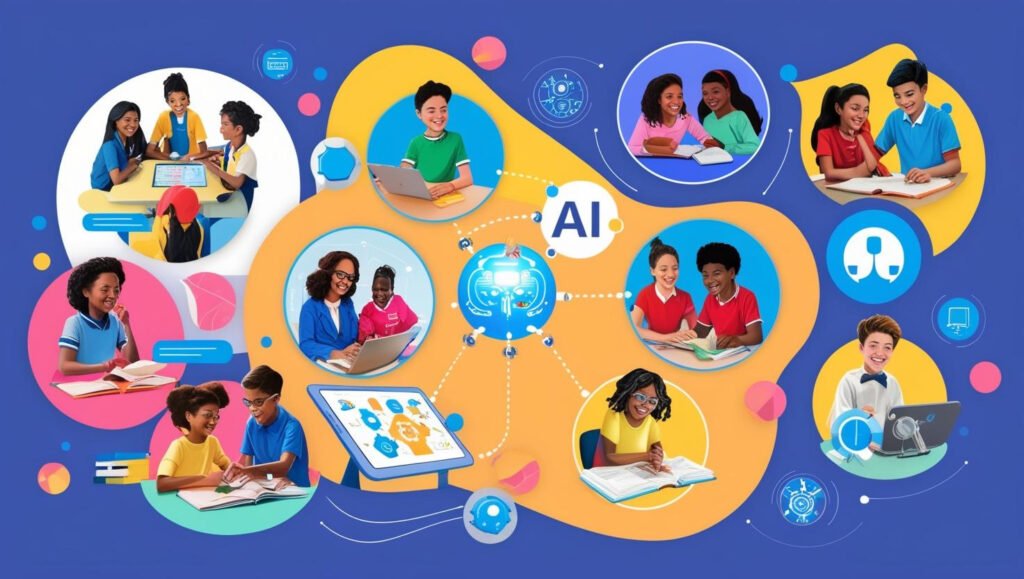AI in Education Future of Learning and Teaching
In today’s time, technology has started showing its power in every industry, and the education sector is also getting affected by this transformation. The use of artificial intelligence in the education field is not only enhancing teaching and learning, but it is also creating new opportunities for both students and teachers.
1. What is AI in education?
Artificial intelligence (AI) means designing machines that can replicate human-like intelligence. When we talk about education, AI means developing tools and systems that make the learning and teaching process efficient, personalized, and interactive.

If you want to understand the concepts of AI and want to acquire AI skills for your career, you will get resources related to career development that will help in your career growth.
2. Ai tools and Application in Education
Personalized learning: AI helps in creating smart content like interactive videos, quizzes, and assessments that make learning interesting.
Virtual Teaching Assistants: AI-based assistants like chatbots and virtual tutors solve students’ doubts and provide extra help, especially after school hours.
Grading and Feedback Systems: AI grading systems efficiently grade assignments and provide quick feedback, which reduces the teacher’s workload.
If you want personalized study tips, then read study tips for students struggling with focus, which can make your learning process even better.
Better engagement: AI powered tools, such as gamified learning, engage students and help them learn through interactive lessons.
24/7 learning support: AI based tools provide 24/7 support to students. Virtual assistants, who are available anytime to students or AI tutors, can help students at any time.
data-driven insights: AI provides detailed insights to educators, through which teachers can track the progress of their students and develop customized teaching methods for them.
Cost-efficiency: AI is used to automate administrative tasks in schools and colleges, thereby saving time and resources.
3. Challenges of implementing AI in education
There are as many challenges as potential benefits of implementing AI in education.
Some key challenges:
Cost of implementation: The initial cost of AI-based tools and systems is quite high, which can be a barrier for small schools or underfunded institutions.
Data privacy issues: AI systems collect student data, which raises privacy and security concerns.
Lack of AI knowledge: Teachers and educators need proper training to use AI tools. If they do not have adequate training, the full potential of AI cannot be exploited.
Resistance to change: Some people find using AI uncomfortable compared to their traditional teaching methods, which can slow down adoption.
4. Future of Ai in education
The future of Ai in education is very bright. In the coming time, learning and teaching methods can become even more advanced with the use of Ai. Some of the trends we can see include.
Increased Automation in Education: Routine tasks such as grading, scheduling, and student monitoring can be automated with the use of Ai.
Ai-Powered Virtual Classrooms: Ai-based virtual classrooms can be common in situ learning and online education, where teachers and students can engage in interactive sessions.
More Advanced Personalized: Artificial intelligence systems will create more personalized learning paths, instead of replacing them. If you want career development ideas using AI then the article How to use Chatgpt for career development can be quite useful.
Conclusion
The use of AI is increasing in education, and it is benefiting both students and teachers a lot. If you are interested in making your education AI-based and personalized, you can explore Badre university online learning programs. These give you a chance to improve your learning experience with the use of AI and technology.